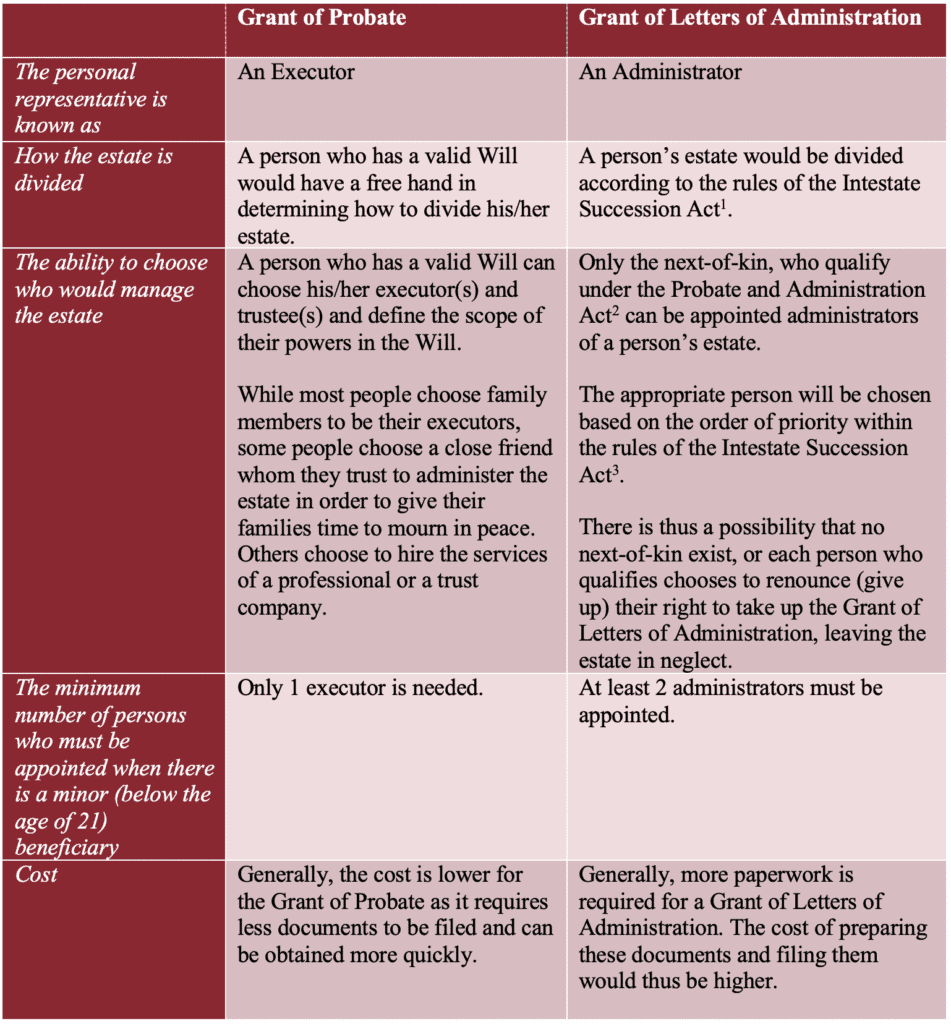When a person passes away, that person’s estate does not automatically transfer to his or her intended beneficiaries. A legal document known as a Grant of Probate or a Grant of Letters of Administration must be obtained (or in legal terms, extracted) by the appropriate person (known as a personal representative) in order for authority to be given to this person to manage the deceased’s estate.
- The difference between the two lies in whether a person left behind a valid Will. The Singapore Family Justice Courts will require a Grant of Probate to be extracted if there is a valid Will left behind by the deceased. The Grant of Probate will allow for the personal representative (known as the executor) to divide the deceased’s estate in accordance to the Will.
- If the deceased did not leave behind a valid Will, then a Grant of Letters of Administration needs to be extracted instead. The Grant of Letters of Administration will allow the personal representative (known as the administrator) to divide the deceased’s estate according to the Intestate Succession Act (Cap. 146).
- If the deceased left behind a valid Will but failed to appoint an executor/executors, or the executor(s) appointed are unable or unwilling to administer the estate, the court will then consider the fittest person(s) to administer the estate and allow for a Grant of Letters of Administration with the Will Annexed to be extracted.
- In the table below, some of the key differences between a Grant of Probate and Grant of Letters of Administration are listed.

[1] Section 7 of the Intestate Succession Act
[2] Section 18(3) of the Intestate Succession Act
[3] Section 7 of the Intestate Succession Act



